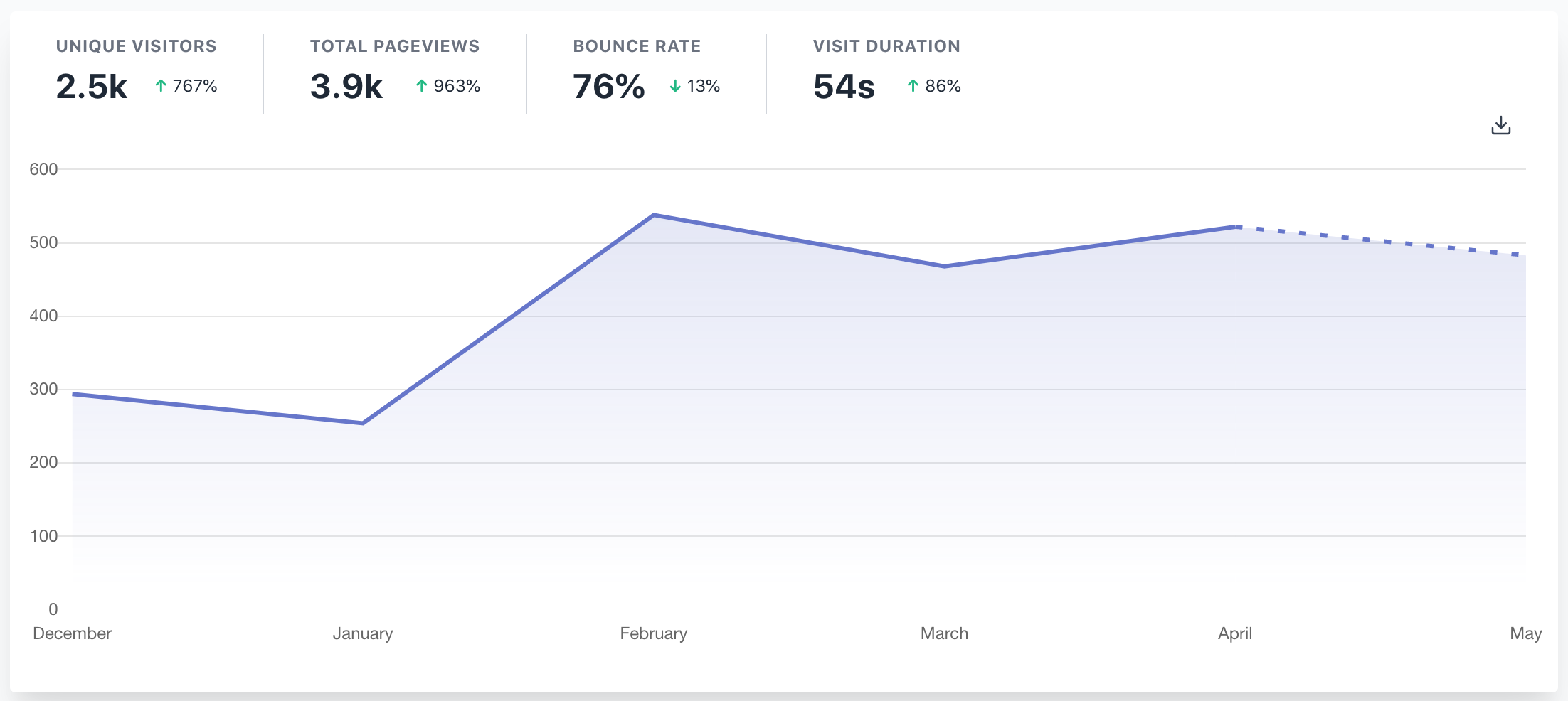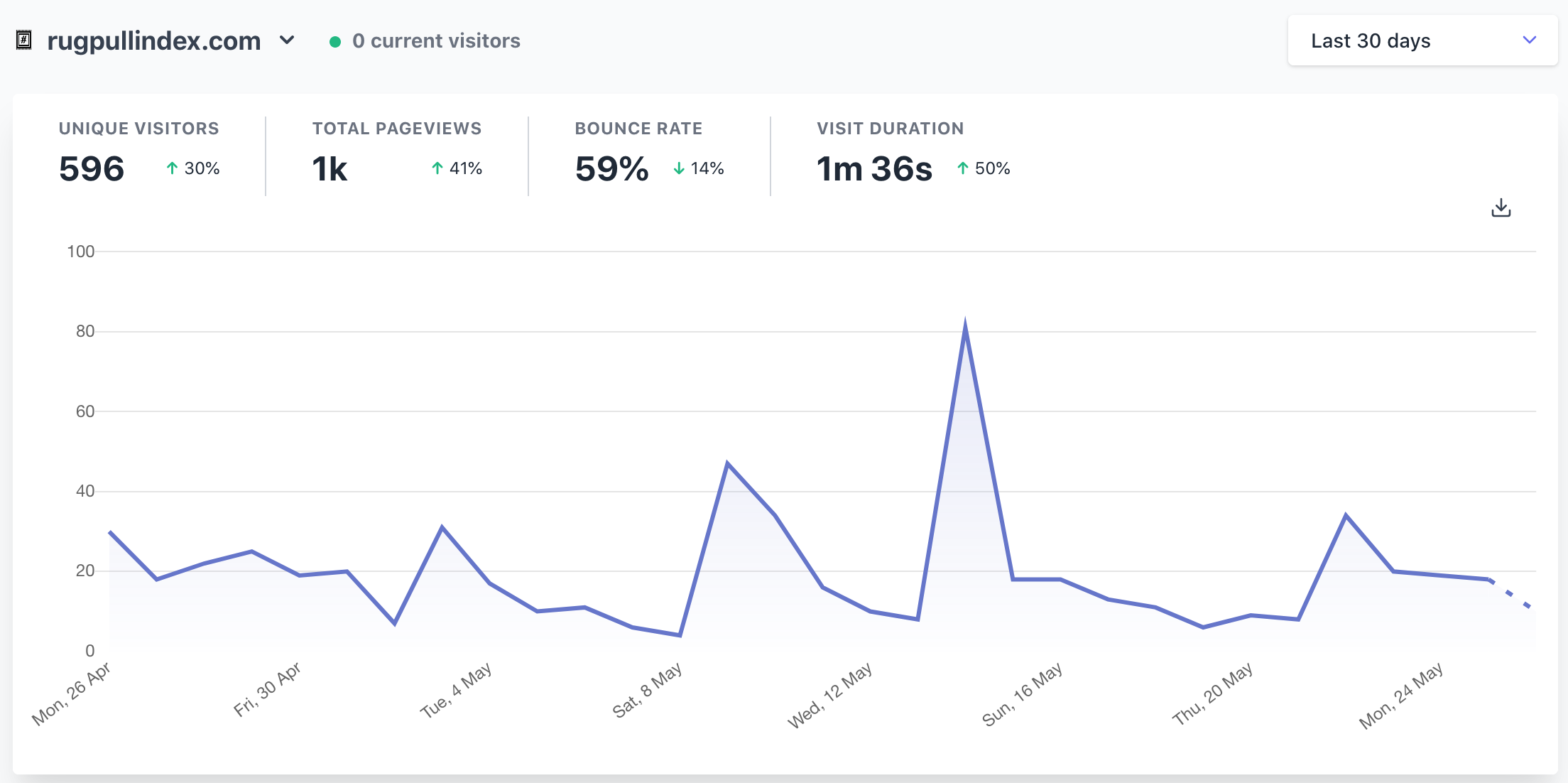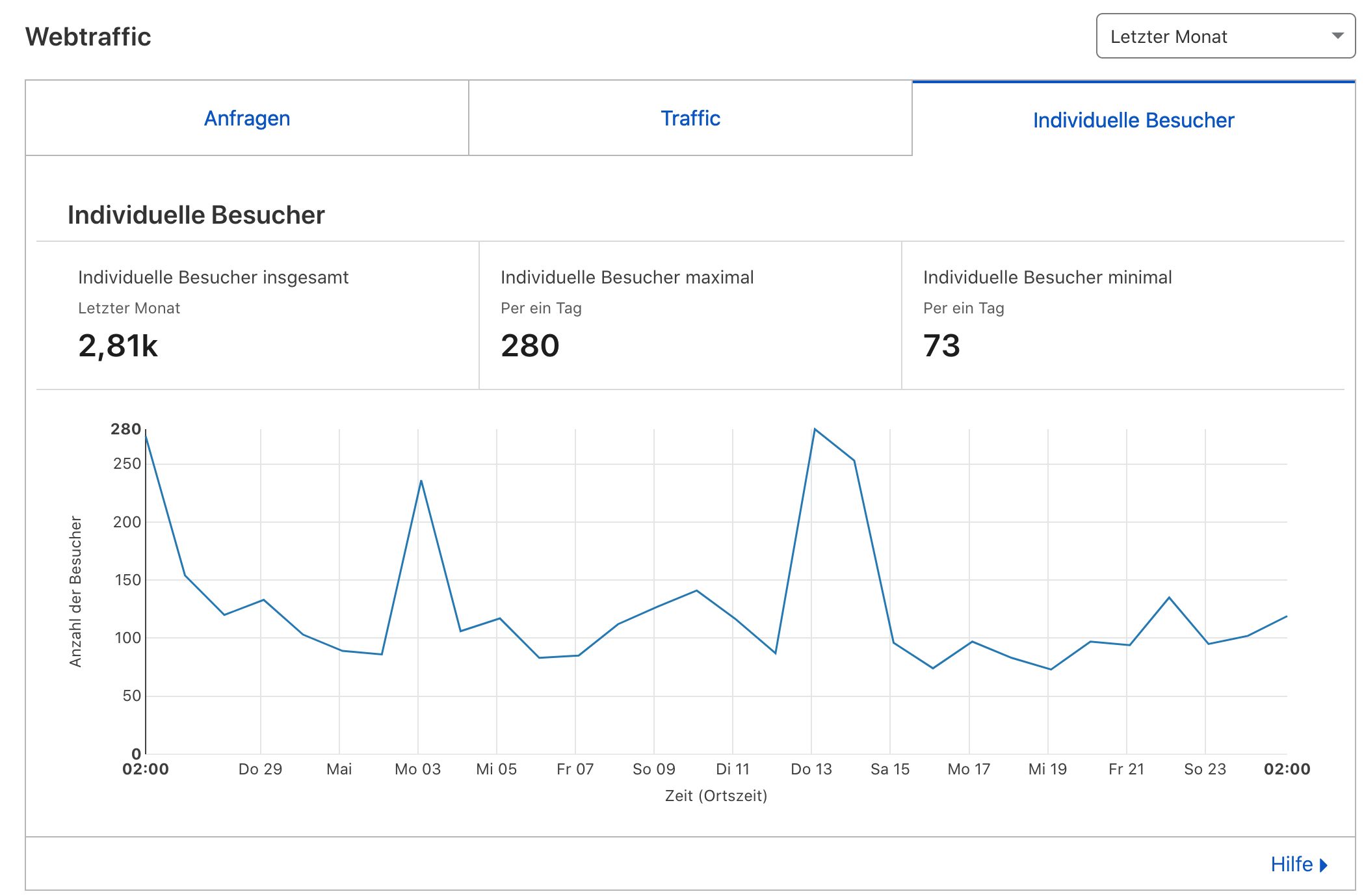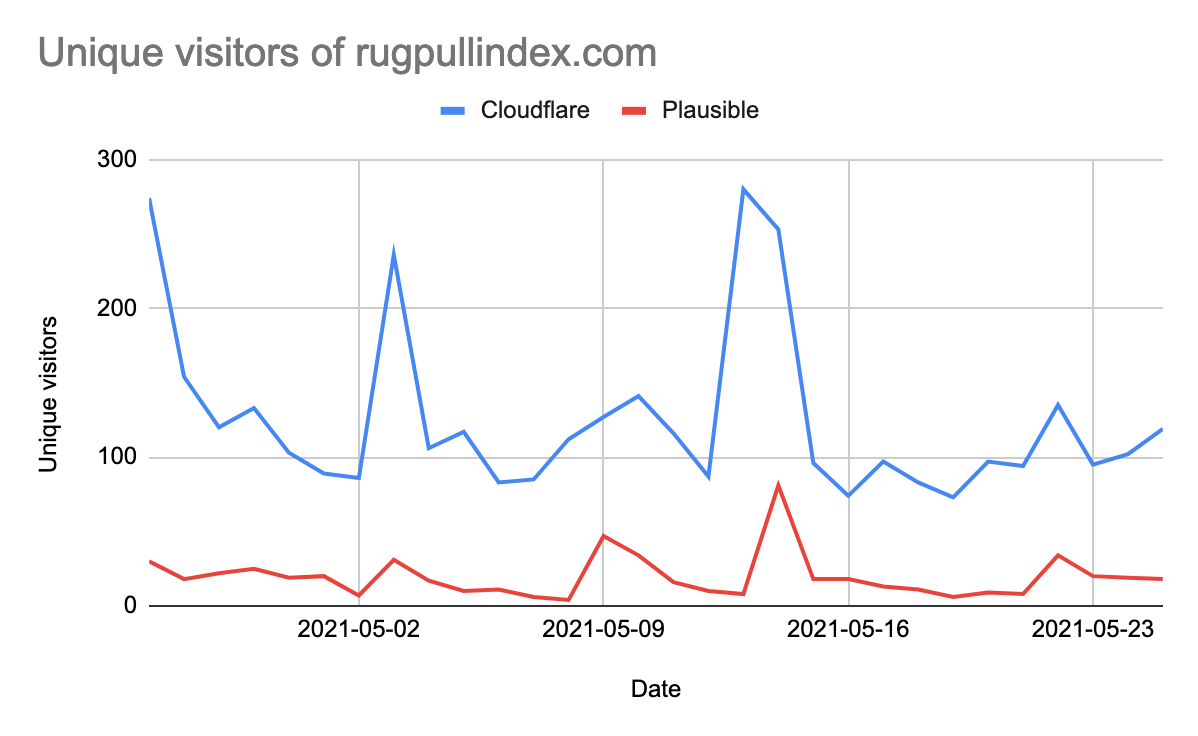
From rugpullindex's first days, I made its website analytics public by using plausible.io. I'm a huge fan and paying customer of their service. I like the idea of making my website's stats public. And, I'm a fan of using a solution that's privacy-friendly. Actually, I liked plausible's product so much that I've presented this website's stats as a voting criteria in all OceanDAO rounds.
Recently, however, I became aware of a problem with plausible's web analytics, that I believe is important to share here. It has to do with the fact that many ad blockers are now blocking plausible's tracking script.
If we take a look to RPI's six month unique visitors, we just see that its been fairly stable. Between February and May, there's been roughly the same amount of unique users per month (around 500).

We can also look at pausible's 30 day view to get a feeling of how many unique users visited in the last 30 days:

Indeed, the stats look plausible. Since I started to deliver my website through Cloudflare on April 21, 2021, however, I noticed a large deviation on their website analytics frontend for the same timeframe.

While plausible logs 596 unique visitors, Cloudflare displays 2,81k! I found this difference quite interesting, given that both services use a completely different technique of tracking unique website visitors.
Here's how they differ: (1) As Cloudflare is a content delivery network (short CDN), it can track unique visitors e.g. by checking everyone's IP on a request level. (2) Plausible, since it's not part of RPI's infrastructure, has to rely on an embedded JavaScript to send data to its servers.
And though plausible is a publicly-committed company towards privacy-friendliness, they've publicly stated that their script has started to appear on blocklists. This means, that for any ad blocking browser, their users might now show up as unique visitor in our plausible.io stats.
Seeing this, I thought it may be interesting to compare both sets of data side-by-side and so I did using a Google Spreadsheet:

And, indeed, the difference is huge. But it makes sense. According to some napkin math, Cloudflare has counted 87% more unique daily users on average than plausible.io.
Plausible's co-founder Marco Saric came to a similar conclusion when a year ago, he blogged about an observation that 26% of a tech-savy audience blocks Google Analytics over plausible.io's tracking script.
Seeing these facts, I found it reasonable to assume that a similar effect may happen to rugpullindex. And that's what I was able to confirm with my napkin math.
Given that users can't directly influence Cloudflare's unique visitors metric by e.g. installing an ad blocker, we can assume that on average, the daily count of unique visitors from plausible.io deviated by a wopping -87%. Instead of plausible's 590 unique visitors since April 26, 2021, it's more likely that rugpullindex had a total of 3767 unique visitors.
Plausible has reacted to the problem by allowing users to submit stats through a proxy. As rugpullindex's stats are vital for its community to determine its future funding and value, it has hence become my recent priority to address the problem. Step one was writing this post to inform everyone.
Finally, I'd like to say that I'm a bit sad about this situation. I personally care about my privacy online and I hate that tracking has become a sound business model for many tech companies. It's the reason I've always been excited about data sovereignty, OP and rugpullindex. I find it stupid that my project's stats are distorted because others are extracting millions through non-consensual tracking. Is this why we can't have nice things?
Additionally, I believe that merely tracking user flow isn't falling into the category of "privacy-invading" technology and I'd therefore like to say that blocklist maintainers should start offering more opinionated views (e.g. support plausible.io but not GA).
Finally, I'd like to say that I don't want to blame anyone directly for the situation. Rather, I believe that it's a systemic issue may be addressed by finding better business models for cyberspace that don't rely on ads.
I'm hoping to correct the stats tracking soon. And, that's all for today.
Best, Tim